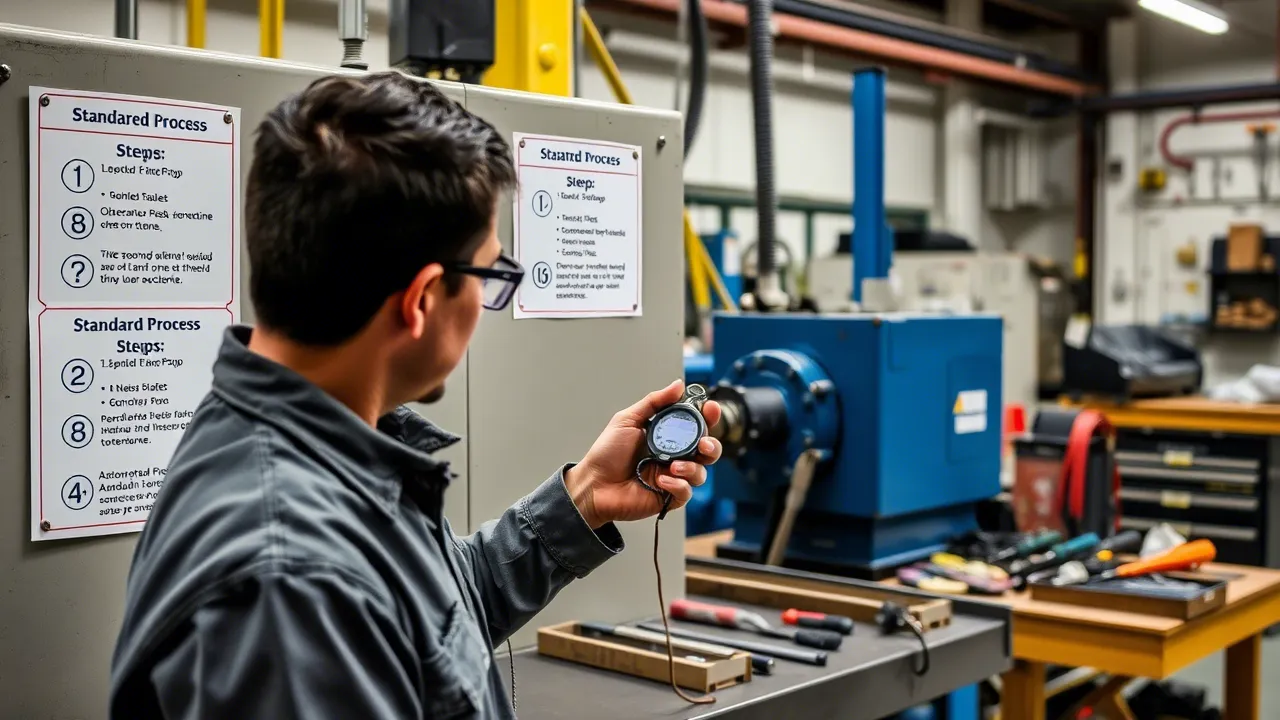The methods study comprises eight fundamental stages:
1- Select the task or process to be studied, for this we will consider those tasks that have a higher cost, require a greater number of workers to perform, generate bottlenecks, are very repetitive within the production process, involve greater risk, in short, those tasks whose improvement of manufacturing methods have a greater impact on the company.
2- Record through data collection or direct observation. We will collect all data related to the operator, the material, the work equipment, the time spent on each task, the route of both the worker and the materials and finished products, etc.
3- Examine the recorded facts with a critical spirit. The objective will be to discover the reason for carrying out each of the activities in order to discover existing deficiencies and implement possible improvements. For this, we will use the questioning technique, asking ourselves the following questions for each of the activities:
- Purpose
What is being done?
Why is it being done?
What else could be done?
What should be done?
- Place
Where is it being done?
Why there?
Where else could it be done?
Where should it be done?
- Succession
When is it being done?
Why then?
When could it be done?
When should it be done?
- Person
Who is doing it?
Why them?
Who else could do it?
Who should do it?
- Means
How is it being done?
Why that way?
In what other way could it be done?
How should it be done?
4- Create new alternative methods to the current one. We will propose our new improved method.
5- Evaluate the results of different solutions by comparing the previous method with the new method.
6- Define new methods and present them to management. Once determined which is the best method, we will present it for implementation.
7- Implement new methods and train staff to apply them.
8- Control the application of the new standard by following the results obtained and comparing them with the expected objectives.
View Quiz
Complete Lesson
Next Lesson
Reset Lesson
Conclusion
Mastering industrial time study techniques is essential for any professional seeking to optimize production processes. The systematic application of these methods not only improves operational efficiency but also significantly contributes to cost reduction and increased business competitiveness. Remember that precision in measurement and rigorous data analysis are the basis for establishing reliable time standards that drive continuous improvement in your organization.



